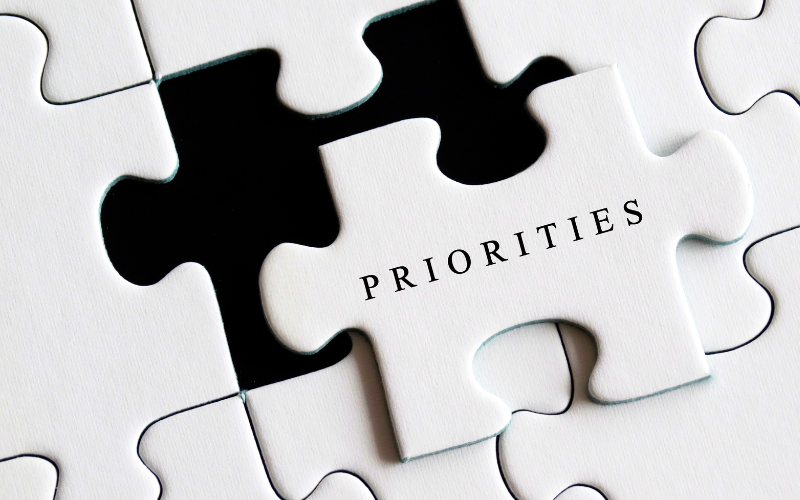In today’s fast-paced world, self-discipline is an essential skill to navigate through the challenges and distractions that come our way. It enables us to achieve our goals, stay focused, and maintain healthy habits. To help you harness the power of self-discipline, we’ve put together the 10 best tips to build self-discipline, empowering you to take control of your life and reach your full potential.
1.Set Clear Goals and Priorities
Define Your Purpose
- Reflect on your values and aspirations
- Write down your long-term goals and break them into smaller, achievable milestones
Prioritize Your Goals
- Evaluate the importance of each goal
- Create a daily, weekly, and monthly task list

2. Create a Daily Routine
Establish Consistent Sleep Patterns
- Aim for 7-8 hours of sleep each night
- Develop a bedtime routine to wind down
Plan Your Day
- Schedule tasks and allocate time for breaks
- Include time for relaxation and self-care

3. Break Bad Habits and Replace Them with Good Ones
Identify Your Triggers
- Recognize patterns and situations that lead to undesirable behaviors
- Develop strategies to avoid or cope with triggers
Cultivate Positive Habits
- Implement new, healthier behaviors gradually
- Reward yourself for maintaining good habits

4. Stay accountable
Find an Accountability Partner
- Share your goals and progress with a friend or family member
- Provide mutual support and encouragement
Track Your Progress
- Use a journal, app, or spreadsheet to monitor your achievements
- Reflect on your progress and adjust your strategies accordingly

5. Embrace Delayed Gratification
Set Intermediate Milestones
- Break long-term goals into smaller, more manageable steps
- Celebrate and reward yourself upon reaching each milestone
Practice Patience and Resilience
- Remain focused on the long-term benefits of your efforts
- Learn from setbacks and stay committed to your goals
6. Develop Mental and Physical Resilience
Engage in Mindfulness Practices
- Try meditation, yoga, or deep breathing exercises
- Foster self-awareness and mental focus
Prioritize Regular Exercise
- Incorporate physical activity into your daily routine
- Choose activities you enjoy and commit to them consistently

7. Eliminate Distractions
Create a Dedicated Workspace
- Establish a clutter-free, organized environment
- Remove unnecessary distractions and interruptions
Utilize Focus Techniques
- Try the Pomodoro Technique or similar productivity methods
- Schedule dedicated blocks of time for tasks that require concentration

8. Cultivate Willpower
Strengthen Your Self-Control
- Practice resisting temptations and impulses
- Develop strategies to overcome moments of weakness
Boost Your Motivation
- Visualize your goals and the benefits of achieving them
- Surround yourself with positive influences and inspiration
9. Learn to Manage Stress
Practice Stress-Reducing Techniques
- Engage in relaxation activities such as meditation, deep breathing, or progressive muscle relaxation
- Incorporate hobbies and leisure activities into your routine
Seek Support When Needed
- Reach out to friends, family, or a professional therapist for guidance
- Develop a support network to help you manage stress and maintain self-discipline
10. Maintain Balance and Flexibility
Avoid Overcommitting
- Learn to say no and prioritize your commitments
- Ensure you allocate time for rest and rejuvenation
Adapt to Changing Circumstances
- Be willing to adjust your goals and strategies as needed
- Embrace change and view it as an opportunity for growth
FAQs:
-
Why is self-discipline important?
Self-discipline is crucial for personal and professional success, as it enables you to manage your time effectively, make better decisions, and persevere through challenges.
-
How long does it take to develop self-discipline?
Developing self-discipline is an ongoing process that varies for each individual. With consistent effort and practice, noticeable improvements can often be seen within a few weeks or months.
-
How can I maintain self-discipline in the face of setbacks?
Maintaining self-discipline during setbacks involves practicing resilience, learning from your experiences, adjusting your strategies, and staying committed to your goals.
Let’s recap
Building self-discipline is a journey that requires patience, perseverance, and continuous self-reflection. By implementing these 10 best tips to build self-discipline, you will be better equipped to overcome challenges, pursue your goals, and lead a more successful and fulfilling life. Remember, the key to self-discipline lies in consistent effort and a commitment to personal growth. As you progress on this journey, you will not only develop the skills to master your life but also unlock your full potential.



